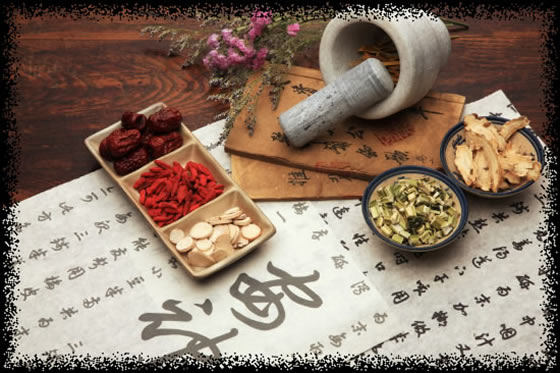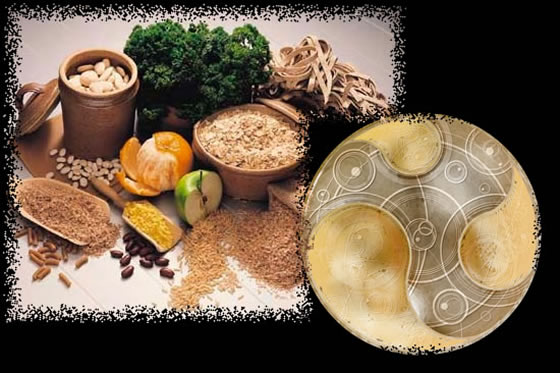

Though she enjoyed being in Liverpool, and even more so, staying with Li in the Chinatown district where she was known as a friend to the community, Marion had been anxious for several days about the situation on Gallifrey. She was thoroughly relieved when she got Kristoph’s videophone call to say that the crisis was over.
“I have some details to settle, a few more meetings to ensure that everyone understands about the new Guilds, and then I will come to join you. I should very much like to spend an evening in Chinatown myself.”
“You will be my welcome guest, Chrístõ Mian,” Li said to that proposal. “Meantime, you will beg my pardon if I take your honourable lady to lunch at our favourite restaurant. She has not eaten with any pleasure in the flavour of the food since she arrived here, such was her concern for events on our homeworld. I think she will enjoy a meal now.”
“Oh, I will,” Marion confirmed. “I shall enjoy anything now that I know there isn’t going to be civil war on Gallifrey. Let me call Rodan to change out of her play-clothes. She has been out all morning with her friends.”
Rodan spent a full five minutes telling her foster father about the Chinese junk she had been helping to build in the playground at the top of the street. It was made of cardboard and paper and a lot of imagination but it had taken them all on a journey from China to Liverpool and back again in the course of a morning.
Rodan, ironically, was the only child among them who had ever been to China. Her friends were the children and grandchildren of exiles from that country who had preferred to be strangers in the west rather than live under communist rule in their home country. But they all knew of the land and customs of their ancestors and played games that were the foundation of a unique and vibrant culture in the heart of Liverpool.
The Welcome Friend where they so often went to eat their favourite Chinese food was an important part of that vibrant culture so they were surprised and disappointed to find it closed at lunchtime.
“Due to illness!” Marion read the Chinese lettering on the sign before she read the English version. Both were easy to her after travelling in the TARDIS so often and soaking up the background artron radiation that gave her that unique facility for spoken and written languages. “But everyone was fine when Rodan and I arrived three days ago.”
Automatically she looked up at the window of the little flat she rented above the restaurant. She had come through the portal into the wardrobe in the comfortable bedroom she only very rarely used for that purpose and walked downstairs to the side door to which she had a key. A kitchen porter had been bringing in a supply of vegetables at the back and he had greeted her politely. All had seemed well.
As she looked up her eye was caught by movement in the attic window above her own flat. That was surprising. She didn’t think anyone used those rooms at all. But there had been a face for a brief moment.
“How odd,” she murmured. Then she and Rodan turned to go. She thought about the Chinese grocery around the corner where she could buy ingredients for a home-made meal instead of the restaurant fare. Then Li caught her arm and she turned back again. The restaurant door had been half opened. The manager, Fo Yang, spoke quickly to Li in Cantonese, the language of his region of China. Li replied in the same dialect though with a Mandarin accent on some of his words. Marion recognise both forms of Chinese and fully understood that the manager was asking the herbalist to look at the sick people above in the private quarters.
That was odd, too. Marion knew that the manager and staff of the restaurant all lived off the premises that was usually locked up after the last customers had gone at night. When did people start living above?
Li came with the worried man, of course. Marion and Rodan followed them up two flights of stairs to that suite of attic rooms they had never seen before.
Marion was as surprised as Li was when she saw the beds set up in the largest of the rooms for an extended Chinese family of grandparents, two sets of parents and three children – the youngest a baby of a few months.
The children and one of the grandmothers were in bed, sick. The other elderly woman and the two young mothers both looked as if they ought to be in bed alongside them. The men looked tired and worried.
They were especially worried when they saw Marion. She was English, and they feared her.
That was decidedly odd. She hardly even felt herself a different race to the people of this community and they accepted her as Li’s honoured friend and sometimes visitor.
“Oh!” she whispered as she came to realise what this scene meant. “Oh, Li, they’re illegal immigrants.”
“They are sick people. That is all that signifies at this moment,” Li answered pragmatically. “Rodan, my sweet girl, your grandmamma, the Lady Aineytta, has taught you something of the herbalist’s craft?”
“Yes, Uncle Li,” she answered.
“Good. Run back to my shop and bring to me the herbs that will reduce fevers and relieve pains of the muscles. I will tackle those symptoms right away while I discover the root of the problem.”
Rodan did as he asked, shouldering the grown up responsibility solemnly for one who had been playing make-believe a few hours before. Marion, meanwhile, helped Li to examine the baby and the two children.
“Sweet Mother of Chaos,” he declared as Marion cradled the sick baby, noting how hot his skin was, his face reddish-yellow and his eyes glazed. Like the older children and the elderly people he had a dry cough, but it was far worse when his small body was wracked by it.
“What is it?” Marion asked. “Is it bad? Is it catching?” Even though she asked the question she still held the baby. His mother was too exhausted to take hold of him. Fo Yang was persuading both of the young women to get into bed and making the men sit down, at least.
“It is a strain of Asian flu,” he answered. “One of them must have been incubating the sickness when they set off from China.”
Li quickly asked about their journey and discovered that they had boarded a ship in Shanghai harbour where they had been locked in a cabin with two other families and a supply of food and water for the whole ten day trip. They had been put out in a small boat near New Brighton lighthouse where Fo Yang had met them in his car and brought them to the restaurant. They didn’t know where the other two families went or who they were staying with, but they didn’t think they were coming to Liverpool.
“They will be sick, too,” Li confirmed. “Let us hope they seek help for themselves. Your staff had no contact with them?”
“None,” Fo Yang replied.
“Then you are the only connection between them and the wider community. If we are lucky you are not yet incubating the virus and we may prevent it spreading. Your restaurant must remain shut, of course, and you will have to remain here along with your friends.”
“My cousin and his family,” Fo Yang answered, indicating a closer relationship than mere friendship with the older of the two men. “Fo An Gi is a dissident. He wrote pamphlets condemning the government of China for various corruptions. Also, his brother-in-law has two children. They have broken the one child policy that has existed for many generations in China. They hid the pregnancy and birth, but it could only be a matter of time before they were discovered.”
Marion listened to the reason for their desperate journey compassionately, but she also understood the difficulties that went with their arrival.
“If they are found here, you could lose your restaurant,” she told Fo Yang. “They will fine you and take your licence.”
“That is why I could not take them to hospital,” he answered disconsolately. “Please keep our secret. We are desperate.”
“Of course I will,” Marion assured him. “Besides, that doesn’t matter right now.”
Rodan arrived back as she spoke, carrying a heavy box containing the necessary medicines. Only a strong Gallifreyan child could have managed it. Li thanked her for her effort and told her to sit by the window, away from the sick people. She could not catch this form of flu with her Gallifreyan blood, but she ought not to risk being a carrier.
“When I have it prepared, you will take an infusion that will help your immune system to resist the virus,” he told Marion who had ordinary Human blood. “So too, those of the Fo family who are not yet ill. But medicine for the sick comes first.”
He set to work boiling water in the small kitchen next to the bedroom and making a rust red potion that he sweetened with honey so that the children would like the taste. He cooled it by blowing on the outside of the pan. Marion saw frost form and then melt. He had cooled his own bloodstream, and therefore his breath, in order to make the potion ready in the quickest possible time. He brought it to the children and the adults in cups, and in a sterilised feeding bottle for the baby. As Marion fed the little one he set to work on the second batch of medicine, meant to prevent those not yet taken ill from contracting the virus.
“Will this work?” she asked as she swallowed the lighter rust-red liquid, again sweetened, but not so much as it had been for the children. “Isn’t this sort of thing usually treated with antibiotics?”
“The red powder I put into this infusion is a dried mould from a tree that grows in central China. It was known to cure the aching fevers now known as influenzas many centuries before men like Alexander Fleming came to understand about such things here in the West. The difference is that the body doesn’t become resistant to these Oriental medicines as it does to antibiotics.”
“Why don’t doctors use these medicines, then?” Marion asked. “Western doctors, I mean.”
“They trust in what is manufactured in a test tube, not what comes from nature,” Li answered. “But I do not dismiss the western ways entirely. There are many miracles done by science. I simply put my faith in other methods – as do the Fo family. And so shall you in a few days when they are well.”
“A few days?” Marion didn’t mind so much the task of looking after the sick family. She certainly wanted to see the baby she was holding get well. But she remembered that Kristoph was coming in a few hours to take her back to Gallifrey and she felt curiously homesick for her adopted world.
Li smiled in understanding. His own feelings for the planet he was exiled from were buried deep in his soul. He was a contented Chinese emigrant who lived in peace here in this little community, but he knew the pull of home well enough.
“I should be glad of your help, my dear. And Kristoph’s, too, if home affairs are not too pressing.”
Kristoph had fully intended to go home after a brief evening in the company of his old friend, but when he discovered what was happening he immediately contacted the Chancellor and put the last details of the new Guilds in his capable hands before joining in the work of caring for the sick family. To reduce the risk of spreading any infection among the community he, Marion and Rodan slept in the flat on the middle floor at night. Fo Yang stayed with his family. Those well enough to do so ate meals in the restaurant kitchen where Fo Yang prepared tasty treats to tempt the palates of the bedridden as their fevers broke.
Meanwhile, Kristoph did more than administer potions. He sat in Fo Yang’s office and made a telephone call to an unusual establishment in Cardiff. Marion listened in delight as he spoke to Captain Jack Harkness of Torchwood.
“I’m not one to lean on a man for a favour,” he said. “But I know your organisation regularly organises papers for illegal aliens of the extra-terrestrial sort. It shouldn’t be hard to get immigration visas, right of abode, that sort of thing for the ordinary sort of illegal immigrants who came by steamer from Shanghai?”
Marion didn’t hear the other side of the conversation but she knew from Kristoph’s smile that the Captain was promising to do his best.
And two days later, as the children came to eat downstairs at the table for the first time, enjoying the taste of Fo Yang’s best spring rolls and sweet and sour dumplings, the Captain arrived in person, smiling, as always, like an impossibly handsome advertisement for toothpaste. Kristoph laughed to see him and accused him of only making the journey for a chance to see his wife.
“Of course,” he answered. Kristoph relented and let him have a full five minutes sharing a pot of green tea with Marion.
“You’re keeping well?” he asked, curiously shy with her despite his reputation as a ladies’ man at other times.
“Yes, I am,” Marion answered the best friend of her future son. The relationship between them was as strange for her in that respect.
“I hear you’ve been playing Florence Nightingale to a family of Chinese dissidents.”
“Something like that,” she answered.
“Interesting woman, Florence Nightingale,” Jack Harkness said. “HE told me all about her once. Very frosty to begin with, but once he got her warmed up….”
“I don’t think I want to know that!” Marion insisted. Jack grinned mischievously. “Or is that you being wicked? I don’t think I ought to believe you.”
“Perhaps you’d better go on that way,” Jack told her. “It’s probably safer not to believe a word I say.”
“Thanks for doing what you did for Mr Fo’s family,” Marion told him. “It proves you’re a better man than you pretend to be.”
“Your husband is the better man. I just got my conscience pricked by him. You stick with him, Marion.”
“Oh, I intend to,” she assured him. “We’re going home to Gallifrey later today. We stayed a week longer than we planned already. We had to be sure that everyone got well.”
“Home to Gallifrey?” Jack recognised the irony in a woman with a Merseyside accent talking of a world two hundred and fifty million light years away as home.
“Just a couple of hours by TARDIS,” she said. “I’ll be back here to go shopping in a few weeks.”
Jack might have been on the point of asking to meet her for tea again on one of those visits, but he saw Kristoph coming from giving the precious Home Office papers to the Chinese family and changed his mind about any such suggestion. He made do with looking at her face and fancying, as he always did, that he really could see something of his old friend in her features.

 |
 |
 |